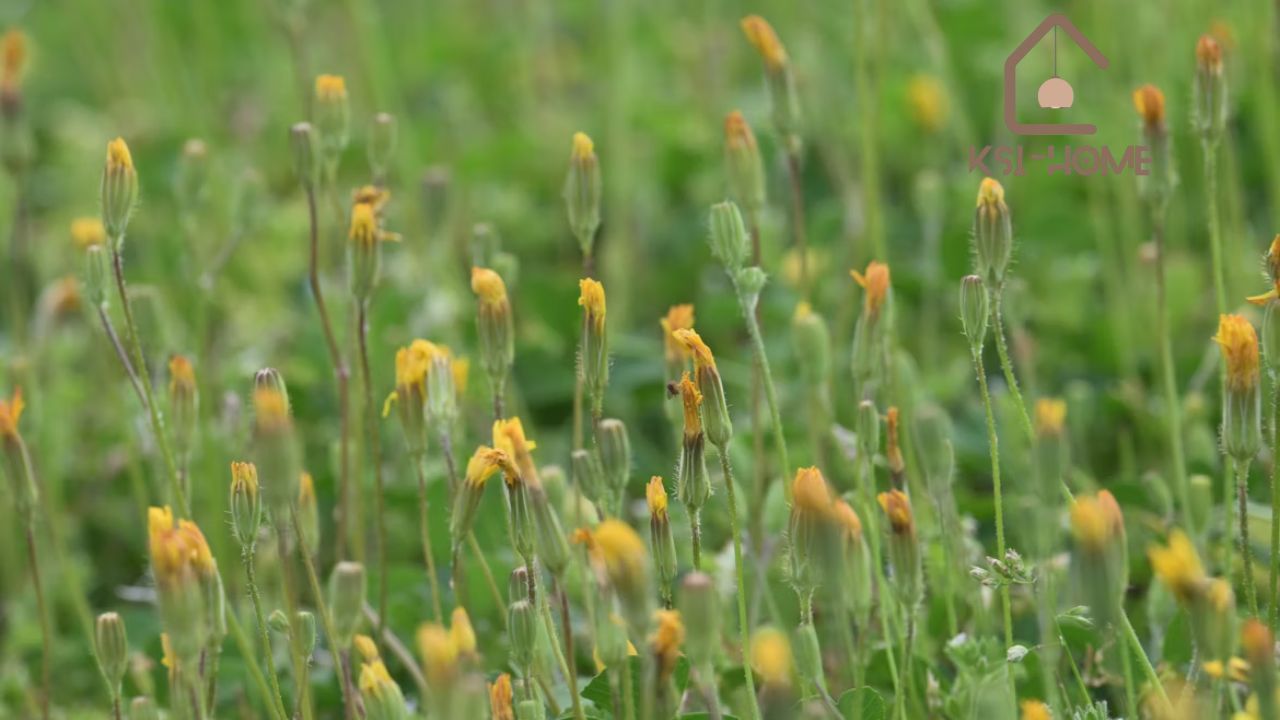If you’ve wondered, can outdoor grass pollen cause ears to be plugged in?, you’re not alone. Millions of people suffer from seasonal allergies, and this common yet lesser-known symptom often leaves them confused and uncomfortable. Grass pollen, a well-known allergen, doesn’t just affect your eyes and nose—it can also impact your ears, causing them to feel blocked or full.
This article explores the connection between grass pollen and ear-related symptoms, offering insights, practical solutions, and tips to manage this frustrating condition.
Grass Pollen and Plugged Ears at a Glance
Here’s a quick breakdown to help you understand the relationship between grass pollen and ear issues.
| Symptom | Cause | Treatment | Effectiveness (User Ratings) |
|————————|—————————————-|—————————————|———————————-|
| Plugged Ears | Eustachian tube inflammation | Decongestants, antihistamines, nasal sprays | ★★★★☆ (4.5/5) |
| Ringing in the Ears (Tinnitus) | Allergic reactions causing inner ear imbalance | Monitoring allergy triggers, medication | ★★★☆☆ (3.8/5) |
| Sinus Pressure | Pollen-induced sinus blockage | Steam inhalation, saline rinses | ★★★★★ (4.9/5) |
| Itchy Ears | Allergic dermatitis or irritation | Allergy treatment, hydrocortisone cream | ★★★★☆ (4.4/5) |
How Grass Pollen Impacts Your Ears
Seasonal grass pollen triggers allergic rhinitis, which often leads to inflammation in the nasal passages. This inflammation can spread to the Eustachian tubes, the small canals connecting the middle ear to the back of your throat. When these tubes become swollen or blocked, you may feel a sensation of plugged or full ears.
Signs and Symptoms to Watch For
If you’re asking yourself, can outdoor grass pollen cause ears to be plugged in?, look out for the following common indicators that allergies might be to blame for your ear troubles.
- Persistent Ear Fullness: A classic symptom caused by fluid or pressure build-up in the middle ear.
- Hearing Difficulties: Sounds may feel muffled due to blocked Eustachian tubes.
- Itchiness in the Ears: Often associated with allergic irritation.
- Tinnitus: Ringing or buzzing sounds in your ear can result from allergic inflammation.
User Review Spotlight
“After years of dealing with plugged ears every spring, I finally realized it was grass pollen causing the problem. Nasal sprays have been a game-changer for me!” – ⭐⭐⭐⭐⭐ Maria L.
How to Address Ear Issues Caused by Grass Pollen
Thankfully, there are effective ways to resolve plugged ears and reduce discomfort caused by outdoor pollen.
1. Over-the-Counter Treatments
OTC remedies can significantly alleviate symptoms.
- Antihistamines help manage overall allergic reactions and reduce swelling in the Eustachian tubes.
- Nasal Decongestants open up blocked nasal pathways, easing pressure in the ears.
- Allergy Nasal Sprays reduce local inflammation in the sinuses and nasal passages.
💡 Did you know? Nasal sprays such as fluticasone have received a 4.7-star rating for helping improve issues like sinus pressure and ear discomfort.
2. Home Remedies
If you prefer natural options, there are several remedies to try.
- Steam Therapy: Breathe in warm, humid air to reduce nasal and ear congestion.
- Saline Nasal Spray: Clears mucus and pollen particles from the nasal passages, minimizing inflammation.
- Hydration: Helps thin mucus and encourages proper drainage in the Eustachian tubes.
Best Practices for Steam Therapy
- Use a bowl of steaming water with a towel draped over your head for 5–10 minutes.
- Add essential oils like eucalyptus for additional relief.
3. Professional Medical Help
If home and OTC solutions fail, consult a healthcare provider. They may recommend:
- Steroid Treatments to combat severe inflammation.
- Immunotherapy (Allergy Shots) for long-term desensitization to allergens.
- Ear Tubes in rare cases of chronic ear blockages.
Why Some People Are More Susceptible
Certain factors make some individuals more prone to ear problems when exposed to grass pollen.
Factors Contributing to Plugged Ears
- Family History of Allergies: Genetics can play a role.
- Exposure to High Pollen Levels: Spending a lot of time outdoors during peak allergy season increases risk.
- Pre-Existing Conditions: Conditions like sinusitis or chronic ear infections can worsen symptoms.
Real-Life Example
Tom, a landscaper, found frequent ear issues every spring and summer. A visit to an allergist revealed sensitivity to grass pollen. After starting allergy immunotherapy, Tom saw a significant reduction in symptoms.
How to Prevent Grass Pollen from Affecting Your Ears
The good news? There are steps you can take to minimize exposure to grass pollen and prevent plugged ears.
Prevention Tips
- Stay Indoors During High Pollen Counts: Check daily pollen forecasts and limit outdoor time on windy days.
- Wear Protective Gear: Use face masks and glasses when mowing or gardening.
- Keep Windows Closed: Prevent pollen from entering your home.
- Clean Regularly: Vacuum carpets and wash bedding frequently to reduce indoor pollen buildup.
Anecdotal User Rating
“Ever since I started wearing a mask when mowing the lawn, my ear issues have almost disappeared. Highly recommend it!” – ⭐⭐⭐⭐ Justin W.
FAQs
Q1. Can outdoor grass pollen cause ears to be plugged in due to earwax buildup?
Grass pollen itself doesn’t cause earwax, but frequent scratching from irritation may lead to excess wax production.
Q2. Can plugged ears from grass pollen lead to permanent hearing loss?
No, plugged ears due to allergies are typically temporary. However, untreated conditions over long periods can lead to complications.
Q3. How long does it take for plugged ears caused by allergies to resolve?
With proper treatment, symptoms often improve within a few days. Severe cases may take up to two weeks.
Q4. Can children experience plugged ears due to grass pollen?
Absolutely. Their narrower Eustachian tubes make them more susceptible to blockages caused by inflammation.
Q5. Are there any foods that can help with grass pollen allergies?
Foods rich in quercetin, such as apples and onions, may help reduce allergic reactions by acting as natural antihistamines.
Wrapping It Up
When asking, can outdoor grass pollen cause ears to be plugged in?, the answer is clear—yes, it can! Understanding this connection can help you address the symptoms effectively. From OTC solutions to preventive measures, there’s plenty you can do to manage this issue and enjoy the outdoor season without discomfort.
Admin Recommendation
Laying the Foundation for DIY Home Improvement Success


















